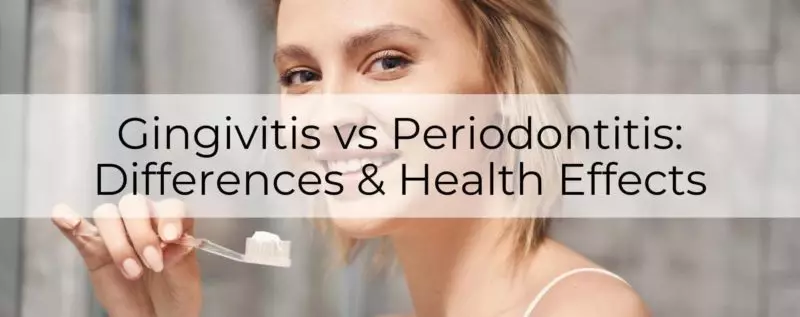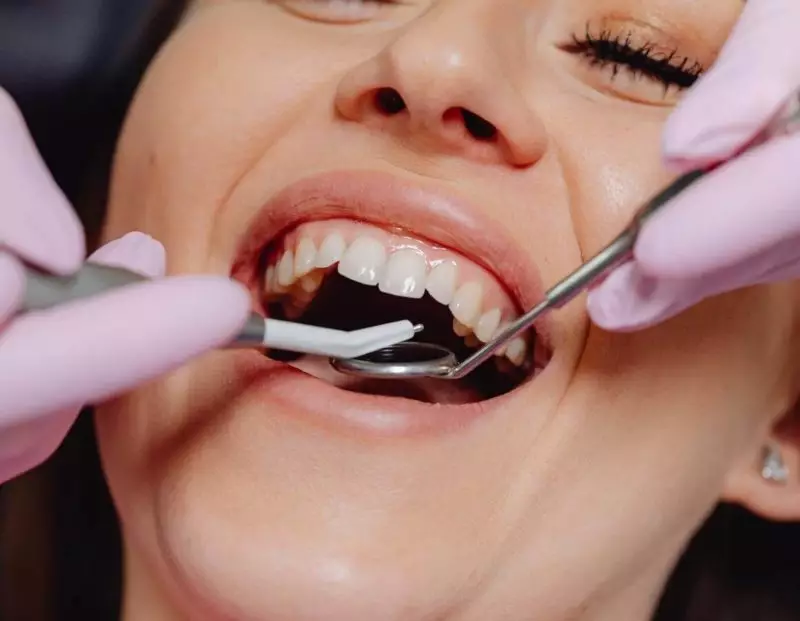
If your head or hand bled every time you touched it, you would certainly be concerned. Gum tissues are no different, they should not be bleeding if they are healthy. An “itis” is Greek for inflammation.
Gingivitis and periodontitis can affect your overall health
Oral health
Both can be marked by bleeding of the gums, bad breath, and calculus build-up around the teeth. Gum disease affects nearly half of adults aged 30 years or older and is the leading cause of tooth loss. When our mouth is in an inflammatory state due to periodontal bacteria, it causes bone loss. This manifests as gum recession and ultimately loose teeth as the bone that surrounds and hold teeth in place begins to erode away.
Inflammation

Digestive health
Bleeding gums are a sign of inflamed gums and can hint to other systemic issues in the body. Inflammation in one part of the body can trigger an inflammatory response in another part of the body as the whole-body system gears up for war against a perceived enemy. In leaky gut, it was found that inflammation lower in the digestive tract resulted in inflammatory markers present in gum tissue. After all, they are all part of the same digestive system!
Pregnancy
Gum disease-causing bacteria could play a role in pre-term birth. When pregnant mice were incubated with these bacteria, they delivered their pups early. It seems that these bacteria originating in an unhealthy mouth could be a player in some early births if they enter the bloodstream and travel to the uterus.
If a woman is considering pregnancy, it would also be prudent to control any inflammation and gum disease to not transmit disease-fighting antibodies to the fetus. A study from Brazil studied 63 women postpartum. 33 of those women had delivered babies that were low-birth-weight preterm. They found that women who had chronic periodontitis were 3.5 more likely to give birth to low-birth-weight preterm babies than mothers with no gum disease.
Alzheimer’s disease
Gum disease causing bacteria has been linked to Alzheimer’s disease In a study conducted in 2019 by a group in San Francisco, gingipain was found in the brain of patients with Alzheimer’s disease. They also found that the byproducts of this bacteria may cause the deformation and tangling of important brain proteins, a classic sign of Alzheimer’s disease.
New research is examining the link between periodontal bacteria and pancreatic cancer. Antibodies against gum disease-causing bacteria are higher in patients who have pancreatic cancer compared to healthy patients.

Treatment
Treatments for gum disease start with a good diagnosis and root cause analysis. A dentist can perform an oral DNA test which collects salivary sample. This test can determine the types of disease-causing bacteria in a mouth and how abundant they are in comparison to healthy bacteria.
Microbiome tests can also identify inflammatory markers and assess the state of inflammation present in the mouth. Once a baseline assessment of the microbiome is completed, your dentist may recommend a deep cleaning. Adjuncts such as Ozone and laser therapy can be used to further disinfect the gums and promote healing. Home care such as water flossers and hydrogen peroxide trays may be recommended to maintain health.

A good home care routine including tongue scrapers, floss, water floss, and re-mineralizing mouthwashes are beneficial in keeping healthy gums. Regularly scheduling hygiene appointments with your dentist will help remove the bacteria that cannot be cleared at home, further reducing the risk of gum disease and more invasive interventions.








